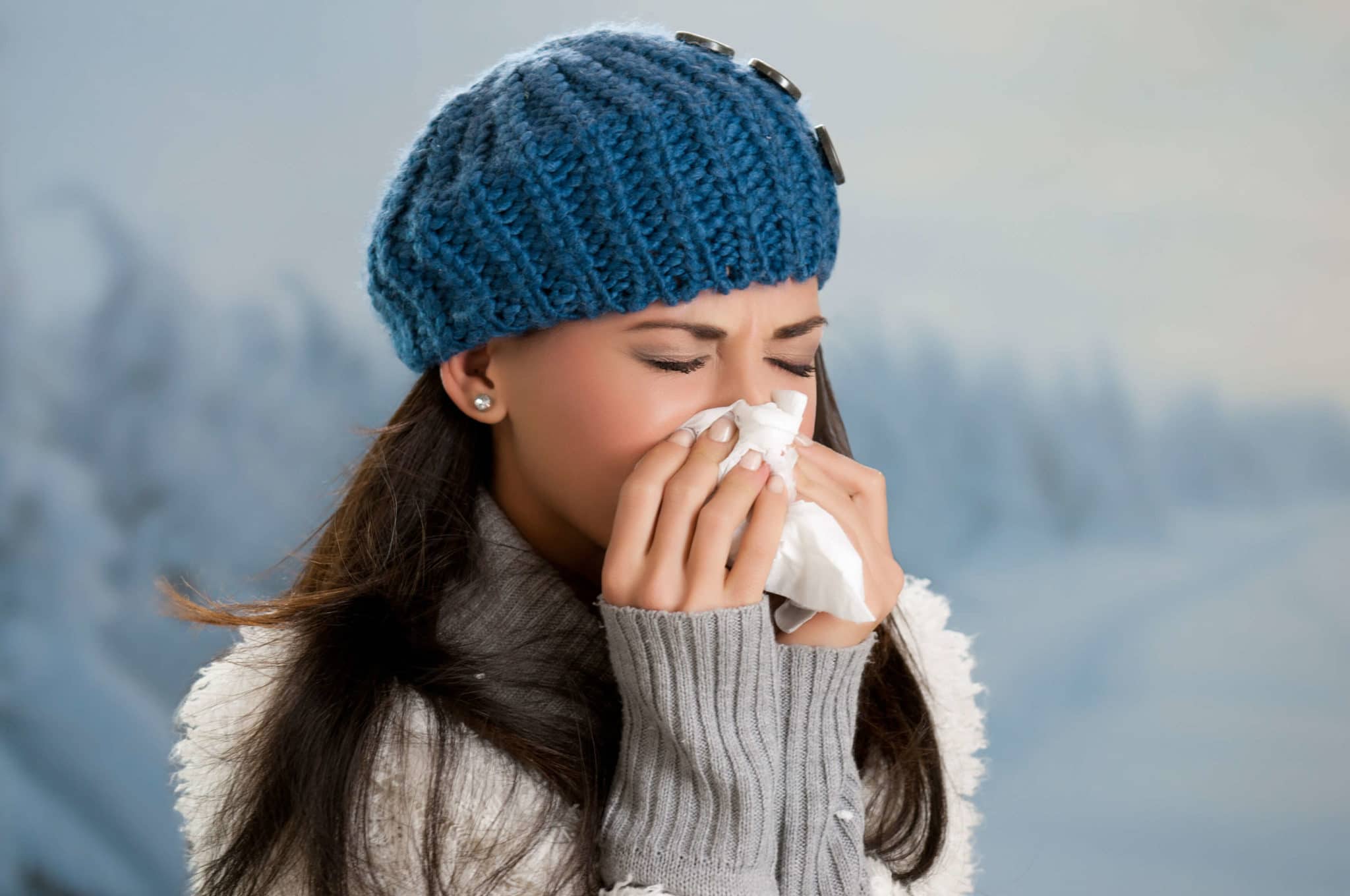As the days get shorter and the temperatures get lower, it seems that the chance of getting a cold increases. The ‘common cold’ does indeed seem more common in the winter. Several factors make the winter season a hotbed for the cold virus, and our behaviour in the colder months may have something to do with it.
Hiding from the cold
When the temperatures drop outside, we find ourselves spending more time inside, with the doors and windows closed. This poor ventilation means that germs remain in the air, as there is nowhere for them to escape to. The cold weather also means that we are more likely to take public transport, and so find ourselves in confined areas in close proximity to others who are coughing and spluttering. Areas that are regularly touched by hands like door knobs, keyboards and rails are havens for germs, and the more time we spend indoors, the more we are exposed to them.
The immune affect
The cold weather also affects the body’s immune system, as it wears down defences against infection. The shorter days and longer nights of winter mean less sunlight and thus less natural vitamin D – which helps power the immune system. This consequently makes us more vulnerable to infection.
The cold virus also transmits faster in the cold. Lower temperatures make its lipid coating tougher, and therefore more resilient and active. Cold air also carries less water vapour than hot air, making it drier. So when we cough and sneeze the mist of particles from our mouth and nose remain in the air for longer; as a result, it is more likely for us to catch the cold virus.
How to protect yourself
Combatting the effects of winter will help reduce the risks of catching a cold. Keep warm by erring on the side of wearing too much clothing. In other words, it is much better to have a hat, gloves and scarf with you just in case you need them, rather than not having them at all. Taking vitamin supplements will help you get your daily recommended intake and keep your immune system strong, so too will getting enough sleep. Drinking plenty of water helps flush out the toxins that accumulate in our bodies, and washing your hands regularly will reduce the likelihood of catching and spreading the cold virus, as will being careful of putting your hands near vulnerable areas like your eyes, mouth and nose.


